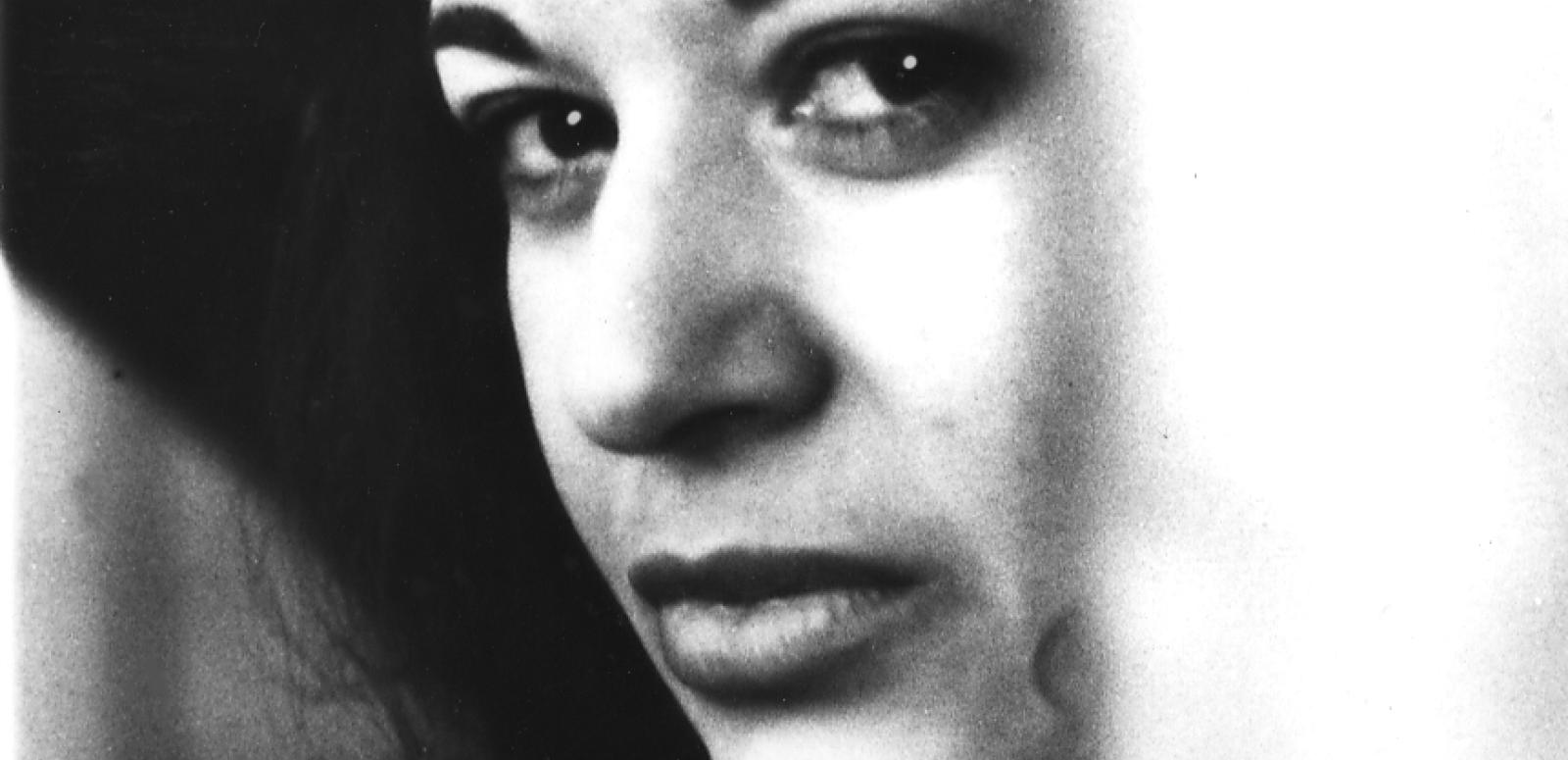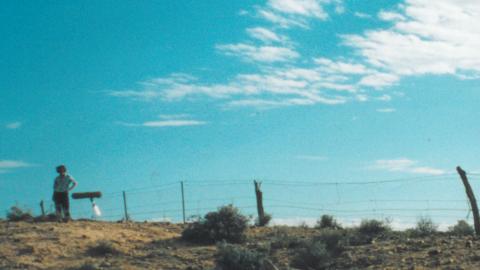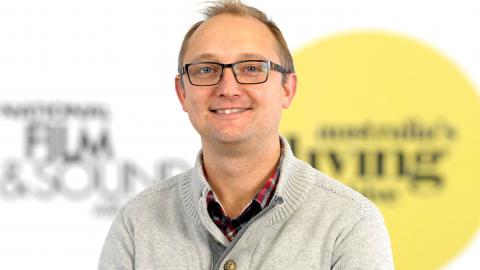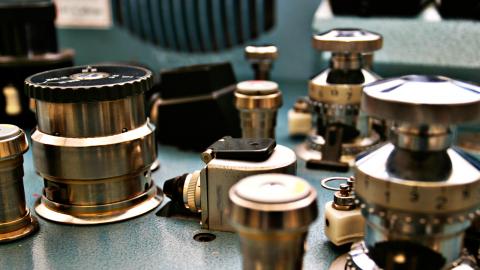

Staff Profile: Michael Karris
Michael Karris has directed over 15 films including A Face of Greekness (1979), Portrait of an Old Man (1976) and Two Homelands (1979), three films which are part of the NFSA collection. Through his role as Video Production Officer in the Collection Reference team, he supplies footage from films in the collection to documentary and feature filmmakers. He previously worked in the transfer suite of Film Australia, digitising its vast collection. Michael joined the NFSA when the two organisations merged in 2011.
He has been referred to as the first Greek-Australian director to create a film entirely about the Greek-Australian experience, identity and sense of place. Michael arrived in Australia when he was five, and grew up in a Greek community in Melbourne. This upbringing informed the ways in which he made and approached film.
As a child he viewed going to the cinema as similar to going to church, sacred and special, where light projected life onto the altar screen. Michael believes that ‘art, self expression and spirituality are part of the make-up of a Greek person.’
In a Greek Orthodox Church you light a candle, providing illumination in a quiet, dark space. In a cinema, you sit in the darkness, and light emanates from the bio box, projecting life on the screen. The screen becomes a moving icon… Byzantine in its art form, expressing a form of spirituality… light and life.
Becoming a director
There were no courses at the time teaching film practice so, armed with a Super 8 camera, Michael taught himself how to make and work with film by studying textbooks, watching films and experimenting with techniques that imitated his favourite filmmakers.
He had an interest in how film could tell stories drawing on someone’s internal, introspective way of looking at the world, and projecting it onto the film screen: ‘I liked the idea of film because it combined art and photography. Two forms of expression coming together, like a moving artwork.’
The film that changed the way he saw the medium was America, America (1963), directed by Elia Kazan, and it inspired him to produce his short A Face of Greekness (1979). It was written, directed and produced by Karris, and the cast was made up of people who lived in his suburb. He hired all the equipment, shooting the film on a 16mm camera.
A Face of Greekness is silent, and the story is driven by the music composed by Savvas Christodoulou. Michael chose not to use dialogue because he liked the idea of setting images to music, and telling a story without words. The black-and-white cinematography meant he could reference America, America.
Michael literally took the film (and his subsequent work, Two Homelands) to film distribution company Roadshow himself, with the cans tucked under his arm. On reflection, he feels that the film was not right for mainstream distribution, but at the time titles such as Cathy’s Child (1979) and Kostas (1979), which dealt with the Greek experience in Australia, inspired his ambition to try.
As far as multiculturalism being represented in films today, Michael believes that:
"Multiculturalism in film and TV is not as it used to be in the 1980s and 1990s. It’s now a matter of looking behind the camera, at the multicultural roots of many of the filmmakers themselves. Even though their content may not be ‘multicultural’, their point of view is. One prolific filmmaker in particular, Peter Andrikidis (early in his career), was not known for making multicultural films but his work, along with that of other filmmakers, has blurred the line between what is Australian and what is multicultural. Underbelly is a pioneering example of this." - Michael Karris
My favourite things in the collection
Michael’s role at the NFSA means he works with films that have been digitally preserved for the collection, many of them black-and-white 35mm Australian films. Supplying excerpts of footage to filmmakers and documentary makers for use in their own works means that Michael’s work resurrects the ‘relics’ of these films from the past, so they can reach a new audience, making them live again.
Supporting new talent is hugely important to Michael, but he also believes that they should always respect the art of filmmaking: ‘modern technology means that anyone can be a filmmaker now, whether they respect the practice of the art form or not. Filmmaking [digitally] is becoming ephemeral but celluloid film, so far, has lasted for more than 100 years.’
This interview was conducted in 2016 when Michael was Operations Supervisor at NFSA.
The National Film and Sound Archive of Australia acknowledges Australia’s Aboriginal and Torres Strait Islander peoples as the Traditional Custodians of the land on which we work and live and gives respect to their Elders both past and present.


